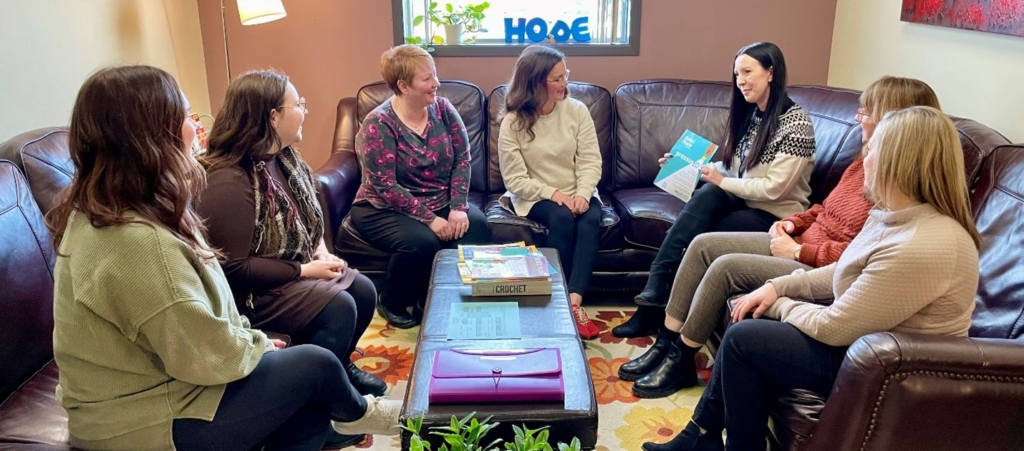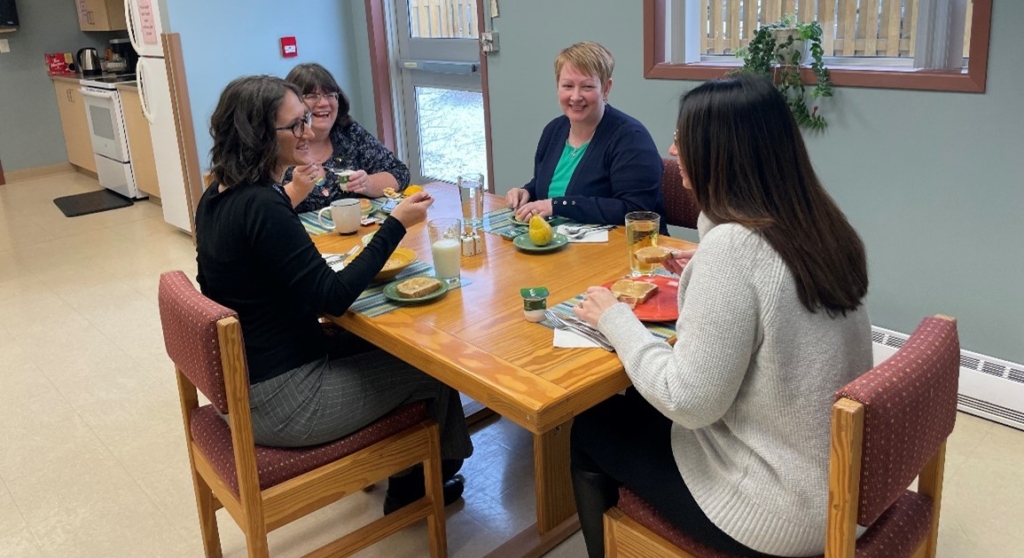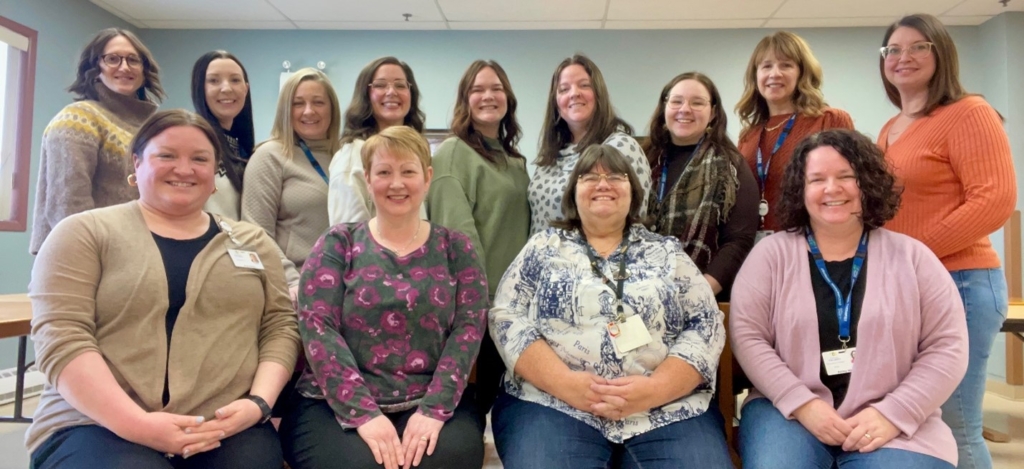Overcoming an Eating Disorder – One Person’s Story
Did you know that thousands of people in our province live with eating disorders? These illnesses, which include anorexia nervosa and bulimia nervosa, can cause serious health issues.
Recent research shows that eating disorders have the second-highest mortality rate of any psychiatric illness, just behind opiate addiction.
As we mark Eating Disorder Awareness Week from February 1 to 7, we want to share an inspiring story of how seeking help changed one person’s life, reconnected her with her family and enabled her to enjoy her life.
We’ll also share resources and links to information for those who’d like to seek help or learn more about eating disorders.
______________
One person’s story
“Before I joined the HOPE program, I severely struggled with food and body image – things I thought were normal. It wasn’t until I was around 21 that I I realized how much I was missing out on. I avoided socializing, isolated myself, and refused to partake in family dinners. I remember my mom asking me every year if she could please buy me a birthday cake, but every year I begged her not to.
“I realized things were no longer in my control and I didn’t want to live this way anymore.
“The HOPE Program gave me my life back and helped me find a version of myself that I now love. I will never be able to thank the team enough for helping me through my recovery and getting me through some of my hardest days.”

HOPE Program staff demonstrate a group therapy session. L-R: Taylor Hiscock, physiotherapist; Jess Kieley, occupational therapist; Kelly Yetman, occupational therapy assistant; Susan Pardy, psychologist; Samantha Scurrey, psychologist; Kelly Maloney, clinical leader/dietitian and Leah Bartlett, dietitian.
The HOPE Program Team
“On the tough days, when I felt like giving up, the HOPE team encouraged me to stick around and try one more time. They asked, ‘What if there’s a better life waiting for you on the other side of your eating disorder?’ Not every day is perfect, and there are bumps in the road, but I kept remembering why I started at HOPE in the first place. I can still hear my care coordinator urging me to try once more – and so I did.

HOPE Program staff demonstrate meal support session. Closest to camera: Leah Thorne, receptionist. Clockwise: Nancy Rogers, dietitian; Cynthia Burt, intake coordinator/nurse and Kelly Yetman, occupational therapy assistant.
“I’m now 27 and almost 2.5 years of my recovery. I’m married, working a job that I love, completing a master’s degree, and hoping to start a family – things that I never thought would be possible without my recovery. While my eating disorder will always be part of me, it doesn’t control my life anymore.
“Recovery was the hardest thing I have ever done, but I’d do it all over again to have the life I do now.
“And every year since, I get my birthday cake!
“Thank you, HOPE for changing my life!”
__________
What is the HOPE program?
We are a team of professionals dedicated to helping change eating disorder symptoms, challenge harmful thoughts and behaviours, and develop new means of coping with everyday stress. Together, we offer the HOPE program at NL Health Services and provide specialized eating disorder services.
Through our outpatient services and the HOPE program, we offer individualized treatment plans for people aged 18 and older, with anorexia nervosa, bulimia nervosa or other specified feeding and eating disorders.
Our interdisciplinary team includes a cook, dietitian, nurse, occupational therapist, occupational therapy assistant, physiotherapist, psychiatrist, psychologist, receptionist, and social worker.
Treatment goals
The treatment goals are individualized based on needs and may include:
- Developing a healthy lifestyle.
- Improving relationship with food.
- Exploring alternative coping strategies.
- Building healthy interpersonal relationships.
- Improving sense of self-worth and body esteem.
- Facilitating effective communication between clients and their loved ones.
The HOPE Program is a provincial intensive outpatient program that provides a higher level of care. Clients in the HOPE program attend individual appointments with clinicians, meal support groups and education/therapy groups.
The adult eating disorder team
 Back row (L-R): Nancy Rogers, dietitian; Samantha Scurrey, psychologist; Leah Bartlett, dietitian; Susan Pardy, psychologist; Taylor Hiscock, physiotherapist; Jennifer Vickery, psychologist; Jess Kieley, occupational therapist; Kelly Maloney, clinical leader/dietitian and Leah Thorne, receptionist.
Back row (L-R): Nancy Rogers, dietitian; Samantha Scurrey, psychologist; Leah Bartlett, dietitian; Susan Pardy, psychologist; Taylor Hiscock, physiotherapist; Jennifer Vickery, psychologist; Jess Kieley, occupational therapist; Kelly Maloney, clinical leader/dietitian and Leah Thorne, receptionist.
Front row (L-R): Amy Martin, social worker; Kelly Yetman, occupational therapy assistant; Cynthia Burt, intake coordinator/nurse and Ashley Walsh, occupational therapist.
Resource links
Eating Disorder Foundation of NL (EDFNL)
The Eating Disorder Foundation of Newfoundland and Labrador (EDFNL) works closely with NL Health Services to support families in their journey and assist those with eating disorders to get connected to treatment services.